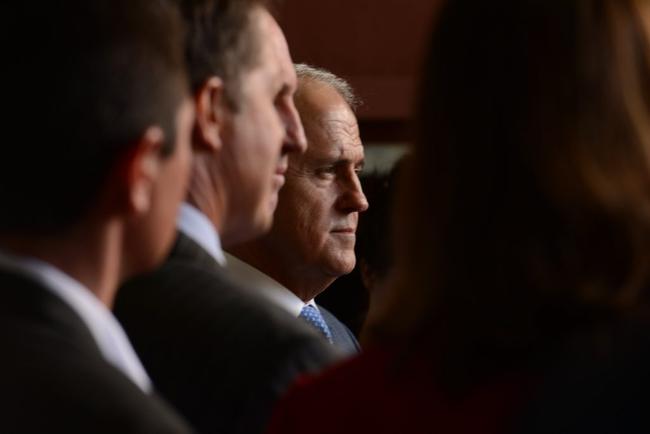Malcolm Turnbull suffers aggressive protest vote: Analysis
If the Liberal-National government is re-elected it has been returned only begrudgingly by voters.

Central & North Burnett
Don't miss out on the headlines from Central & North Burnett. Followed categories will be added to My News.
THE 2016 election has seen a significant protest vote against the Turnbull Coalition government. If the Liberal-National government is re-elected it has been returned only begrudgingly by voters.
Electors might not find Malcolm Turnbull's government exciting but marginally prefer it to the alternative.
In many seats, even where the Coalition manages to hold on, there has been a sizeable swing against the Liberal-National parties.
Yet, only a fraction of this vote has swung over to the Labor party; the rest has gone to other minor parties, the Greens, the Xenophon team and Independents.
This is the closest election since 2010. Once again the result seems a dead heat, with the Coalition unlikely to be able to claim more than a bare majority.
Labor's cynical scare campaign has paid off in Tasmania and New South Wales where health, educational and cost of living concerns have predominated.
Labor is congratulating itself on being competitive and back in the contest after just one term in opposition.
The swing against the government has been huge in Tasmania, and relatively large in NSW, but relatively small to non-existent in Victoria, Queensland, South Australia and Western Australia.
The Palmer party's protest vote in the 2013 election did not return to the major parties but drifted to other minor parties.
In rural and regional seats sea-changers have had a big effect on seat outcomes.
Changing demographics are making once safe regional areas marginal and highly volatile - examples include Herbert, Longman, Macquarie, Gilmore, Cowan and Eden-Monaro.
Once again the opinion polls predicting close to a 50-50% two-party preferred outcome were accurate.
The government's core message that there was no mood for change and that voters should not change horses in mid-stream, did not resonate as much as was expected by many pundits.
The Brexit vote in the UK underscored the sense of uncertainty, but voters have apparently decided they did not want to vote lemming-like for stability.
There will be much soul-searching in the Liberal party about how the campaign was fought and whether it was wise to remove Tony Abbott from the prime ministership only ten months out from the election.
Bill Shorten will survive as Labor leader after this vote, being seen to win the campaign while narrowly losing the election.
John Wanna, Politics Professor with Australians National University


